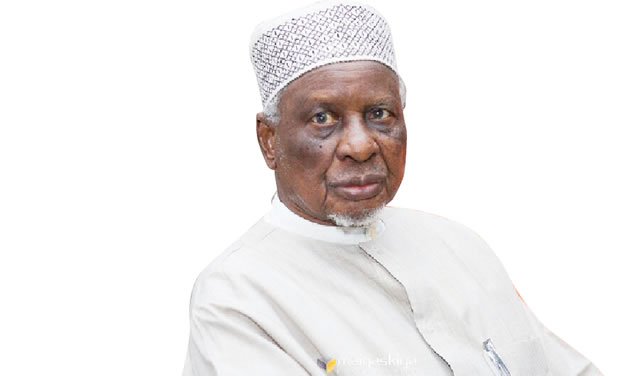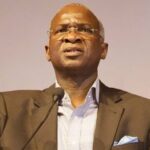
First Republic politician and elder statesman, Alhaji Tanko Yakasai, on Thursday, called on Nigeria to adopt the French presidential system of government and jettison the current presidential system obtainable in the country.
According to him, successive civilian administrations run by the presidential system of government have over time generated massive economic, social and political tensions which the country is currently struggling with.
He made this known at the annual lecture of The Niche with the theme, ‘2023 elections and the future of Nigeria’s democracy’, held at the MUSON Centre, Onikan, Lagos State on Thursday.
Those present at the event include the Minister of Works and Housing, Babatunde Fashola, former Delta State Governor, James Ibori, former NIMASA Director General, Dr. Dakuku Peterside, among others.
He noted that the decision to drop the parliamentary system during the military is largely influenced by American trained elites in Nigeria rather than exhaustive debate and objective evaluation of the full potential of the parliamentary system in Nigeria.
He said, “The dismal performance of the successive governments in harnessing the abundant natural resources and large population has been blamed for the increasing poverty, hunger, insurgency, militancy, youth restiveness, kidnapping, armed robbery, drug abuse, political thuggery, vandalization of national assets, and others.
“Unfortunately, there is no clear sign or political will to reverse this negative trend. The lack of empathy, patriotism and developmental orientation among our political leaders may not be unconnected with the massive powers and resources they control, especially at the Centre. No wonder, the nation is hoping for positive change and clamoring for restructuring after 2023.
“It has been my long standing argument that the regional system of government worked better for the country when compared to all other experimentations. However, in view of the changing local and international dynamics coupled with institutional limitations, reverting to the regional system may not be helpful and feasible under our current precarious situations.
“For this, I advocate for people-oriented change and peaceful restructuring of the current federal system to devolve power and responsibilities to the sub-nationals which would, in turn, offer better opportunity for stability and unity.
“Also, instead of promoting zonal divisive politics, manifesting in the current geopolitical zones arrangements, I support conscious shift to regional competitiveness under a Geo-economic zones model to provide regions with unique opportunity to collaborate, under an agreed structure, to stimulate economic growth in their areas of comparative advantages which may include, industry, agriculture, services, infrastructure, knowledge economy, etc. Eventually, this would offer greater opportunities for states and zones to grow and develop faster than in the current system in the post 2023 era.
“The decision to drop parliamentary system during the military is largely influenced by American trained elites in Nigeria rather than exhaustive debate and objective evaluation of the full potential of the parliamentary system in Nigeria.
“In my opinion that decision was not driven by proper rationale of the suitability of the American system in our own peculiar national situation. The decision has not done justice to the parliamentary system and Nigeria as a country and its developmental needs and economic circumstances. This is because parliamentary system is more democratic in its nature than American Presidential System. It is for that reason that I have been advocating the adoption of French Presidential System of Government for Nigeria. In my opinion it is easier to replace non performing Government in that system than in the American Presidential System.
“Another important reason why I am advocating the adoption of the French presidential system is that it is far cheaper to operate and therefore more suitable to our own reality as a developing Nation. The operation of American system that made administering Nigeria which is a Federal State with diverse nature more expensive to ran and extremely difficult to develop and prosper, unlike many of its sister developing nations.”




